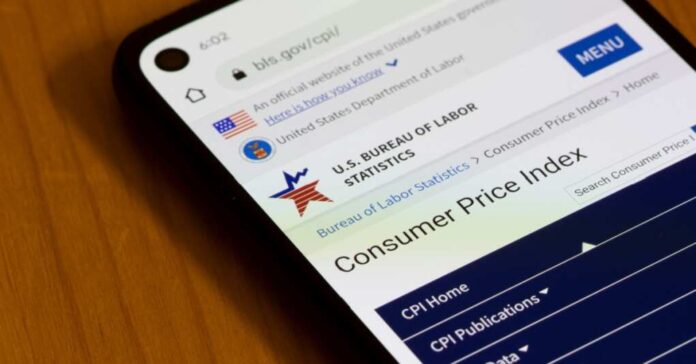
The Biden Department of Labor seemed to add a dash of drama to its usual routine by getting cozy with Wall Street’s elite “super users.” Yes, you heard that right — there’s a secret club for economists where they swap inflation data like it’s the latest gossip at a high school cafeteria.
About a month ago, a scandal rattled a small circle of economists closely monitoring monthly inflation data reported by the Biden Department of Labor. This small group discovered an even smaller, more exclusive group called “super users,” who received special treatment from the Bureau of Labor Statistics (BLS). These select few enjoyed privileged insights into the data, including explanations of discrepancies, such as the January Consumer Price Index (CPI) surge in rental inflation, which perplexed analysts.
As news of this secret group broke, recipients of the revealing email stated that the BLS attempted to retract it, signaling an attempt to cover up their tracks post-exposure. Subsequent investigations by both The New York Times and Bloomberg unveiled deeper connections between a BLS economist and major financial firms like JPMorgan and BlackRock. The economist’s correspondence on CPI-related data raised concerns about fair access to economic information.
According to records obtained by Bloomberg, the unnamed BLS economist engaged in extensive discussions with financial firms, addressing inquiries regarding CPI computations, particularly within the shelter and used cars categories. Initially reported by The New York Times, these interactions included emails to a broader group, whom the economist referred to as “my super users,” contradicting BLS’s previous claim of not maintaining such a list.
In February, the revelation prompted inquiries about the “super users” group. One user asked if they could be added to the “super user email list,” to which the BLS economist replied minutes later, “Yes, I can add you to the list.” This move hinted at the economist’s bid to gain favor among better-paid peers in the finance industry, potentially leveraging preferential data access for future career prospects.
While recipient names were redacted, their affiliations with prominent financial institutions were visible in the provided records. Beyond BlackRock and JPMorgan, other entities like Brevan Howard, Citadel, and Nomura Securities International surfaced in the exchanges. Economists, excluded from the “super user” list, expressed concern over unequal access to economic information, especially after the BLS email hinted at changes affecting January’s CPI surge in February.
Despite attempts to downplay the incident as a mistake, subsequent revelations suggest a pattern of misinformation from the Biden administration. The implications extend beyond embarrassment for the BLS, potentially impacting asset trading and Federal Reserve policies reliant on accurate economic data.
Emily Liddel, associate commissioner for publications and special studies at the BLS, emphasized their commitment to restoring trust in data integrity. However, concerns persist as evidence points to the sharing of nonpublic information by the BLS economist, raising questions about the extent of the issue and the agency’s transparency.
The revelation underscores the need for transparency in accessing economic data, particularly when it influences market dynamics. Analysts and economists engage with government agencies to understand data intricacies, but when access privileges favor a select few, transparency becomes imperative to maintain market fairness.
The incident highlighted the vulnerability of economic data dissemination to manipulation or preferential treatment, necessitating stricter oversight and accountability measures within government agencies. As the investigations into the scandal unfold, it has become increasingly clear that the implications of this event are far-reaching and complex.
It is essential that all participants have equal access to information to ensure that markets operate fairly and efficiently. This includes not only investors but also regulators and other stakeholders who play a critical role in monitoring market activity.
Transparency is equally important. The public must be able to rely on accurate and timely disclosure of information to make informed decisions about where to invest their money. When companies fail to provide this transparency, they not only put themselves at risk but also undermine the credibility of the entire market. It is even worse when BLS is the cause of disinformation.
In short, the implications of this scandal are significant, and they serve as a stark reminder of the importance of maintaining transparency and equitable access to information in the market.















